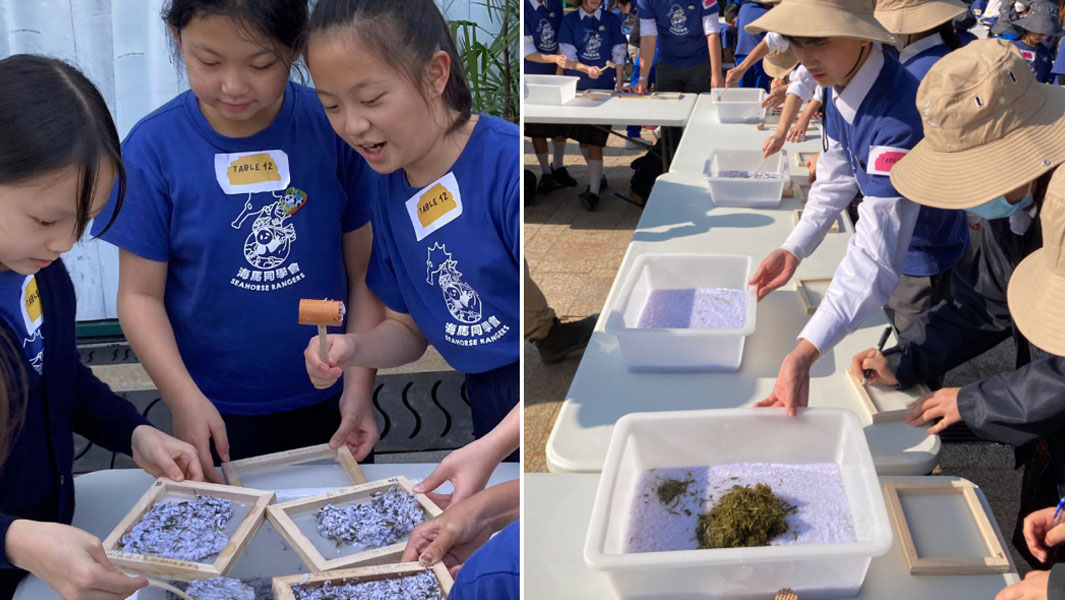Chinese children turn panda poo into paper during record-breaking lesson

By transforming panda poo into paper, 369 Chinese schoolchildren have set a record for the largest animal faeces paper making lesson.
The children, aged 6-15, attempted the record at Hong Kong’s Ocean Park, a marine mammal park and oceanarium.
The faeces used for the lesson were collected in the early morning from both of Ocean Park’s pandas. An adult panda can produce more than 10 kg (22 lb) of faeces per day.
Led by Mr Yip, an expert on panda poo, the students began the lesson by putting on rubber gloves and shredding recycled waste paper.
Ordinarily, the shredded paper would then be soaked for eight hours, but to expedite the lesson, the students were given pre-soaked paper pulp for the next step.

The panda poo, which had been sterilized at 120°C, was mixed with the paper pulp, poured into a plastic tray, then mixed with water at a 1:1 ratio.
After stirring the pulp by hand, students used sieves to extract the fibre sediment, which was used to form the recycled paper.
A roller was then used to press away any excess water, before the sieve was inverted to tip out the finished product.
Finally, the students decorated their papers before leaving them to dry.

Ocean Park’s Yan Man Ling described the “BamPoo Paper Craft” lesson as a “groundbreaking activity centred around the transformative power of unconventional material in papermaking”.
“This activity promotes environmental awareness and motivates students to take part in environmental causes,” he said.
“Students are encouraged to become creative thinkers who push the boundaries of conservation and sustainability.”

Chinese firms have been turning panda poo into tissue paper for several years, though the industrial recycling process is slightly more complex than the method used by the schoolchildren, comprising a 60-step procedure including boiling, pasteurisation, and fibre extraction.
The fibre-rich bamboo waste produced by pandas is perfect for making paper because, during digestion, pandas extract the fructose and separate the fibres from the plant, which are essential steps in paper production.
If you love watching records being broken you should check out our Records Weekly series on YouTube...
Want more? Follow us on Google News and across our social media channels to stay up-to-date with all things Guinness World Records! You can find us on Facebook, Twitter/X, Instagram, Threads, TikTok, LinkedIn, and Snapchat Discover.
Don't forget to check out our videos on YouTube and become part of our group chat by following the Guinness World Records WhatsApp channel.
Still not had enough? Click here to buy our latest book, filled to the brim with stories about our amazing record breakers.


